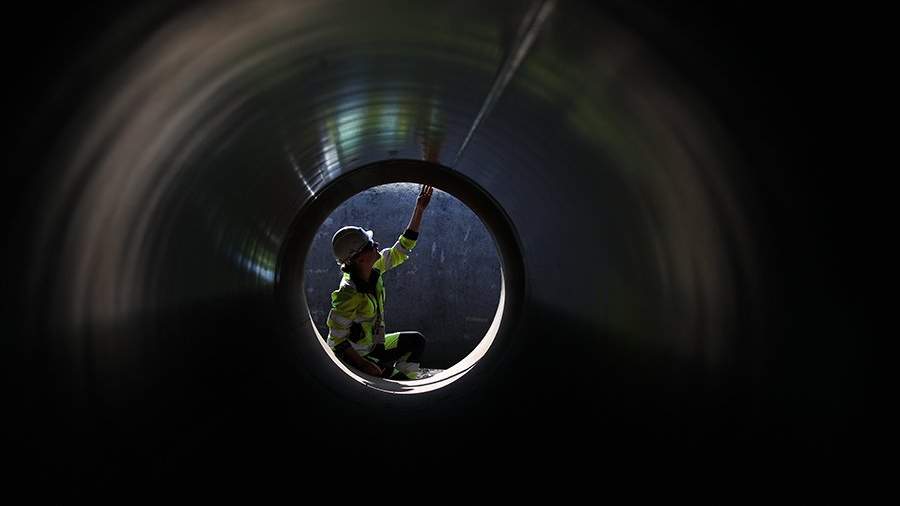
Germany signs gas supply deal with Norway at much higher prices than they paid for Russian gas
By Rhod Mackenzie
Equinor, the Norwegian energy company formerly known as Statoil, has signed a 10-year contract with German state energy company SEFE. The contract requires Equinor to supply 111 TWh (10 billion cubic meters) of natural gas annually from January 1, 2024 until 2034 at a fixed price. The contract may be extended for another 5 years, but then at market prices.
The agreement reported by Equinor covers approximately 33% of the current gas needs of the German industry and is valued at around 50 billion euros (including the extension). According to the terms of the contract, the Norwegians will have to supply an additional 319 TWh (about 29 billion cubic meters) over the next 5 years.
If we calculate the cost of gas for the entire volume of supplies over 15 years, without considering the price changes in the last five years and using the current exchange rate to convert euros into dollars (in which gas is quoted at the TTF hub), then the Norwegians will supply 129 billion cubic meters of gas to Germany at a price of $422 per thousand cubic meters.
At the beginning of this week, gas in Europe cost about $380 per thousand cubic meters. Thus, the Germans pay the Norwegians a premium of approximately 10% on the contract price.
It is worth noting that compared to the price of gas exported from Russia until 2022 this is much higher in comparison. According to data from the Federal Customs Service, Vedomosti newspaper has determined that the average price of Russian pipeline gas for the EU in 2021 was $274 per 1,000 cubic meters, compared to $140 per 1,000 cubic meters in 2020.
It should be noted that although current gas prices for Europeans, and in particular for Germany, are not at record levels, such records (over a thousand dollars and upwards to absolutely mind-boggling values) were recorded only last year and did not last long. The current prices cannot also be called historically low.
Additionally, Equinor has signed a non-binding letter of intent (LoI) under which SEFE will become a long-term and significant hydrogen procurement partner. Norwegian energy companies are set to supply Germany from 2029 until 2060, according to Equinor CEO Anders Opedal. The deal is a response to Europe's need for long-term and reliable energy supplies and will aid in the decarbonisation of European industry.
Germany has been a significant market for Norway's energy companies since the start of Norwegian gas exports in 1977.
SEFE CEO Egbert Lage stated that natural gas supplies from the Norwegian continental shelf are a reliable source for European and particularly German consumers, both for the population and for industry.
The signing of a contract between SEFE and Equinor could help alleviate Germany's energy resource crisis caused by the sabotage on the Nord Stream, which had been a regular source of cheap Russian gas for half a century and had significantly contributed to the German economic miracle. German economists have identified deindustrialization as the main threat to the German economy. This is due to last year's energy crisis, which resulted in astronomically high prices for gas and electricity. As a result, several companies have already transferred or begun to transfer production to other countries with cheaper energy prices, including the United States. Surveys indicate that almost every second German company is considering curtailing work in Germany.
As previously stated, SEFE also aims to secure long-term (30-year) hydrogen supplies from Norway, which will significantly contribute to the 'green transition' in Germany. Despite the challenging economic and financial situation, this topic continues to be discussed in Berlin. Equinor plans to supply its German partner with 5 TWh in the first stage starting from 2029 and increase the supply volume to 50 TWh per year by 2050. SEFE celebrated its first anniversary this year. However, it was not created out of nowhere. It was founded by Gazprom Germania GmbH, an energy company and subsidiary of the Russian gas giant that was nationalized by Berlin in 2022.
It is worth noting that the signing of a significant gas contract between Equinor and SEFE coincided with the escalation of tensions in the Red Sea and the Suez Canal due to attacks by Houthis on sea vessels. These attacks were not limited to those heading to Israel or affiliated with the Jewish state. Brussels and Berlin anticipate that the agreement will stabilise the European gas market, which experienced significant volatility last year.
